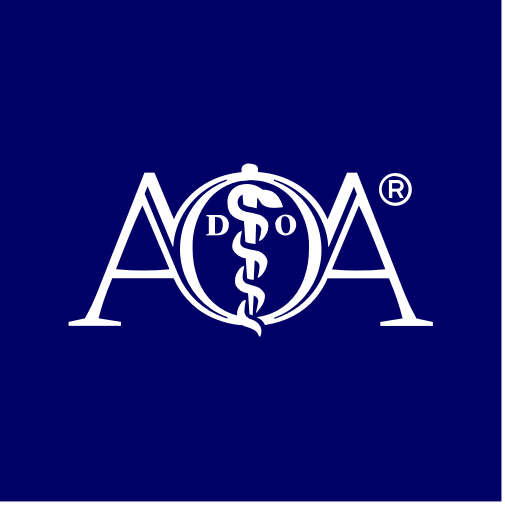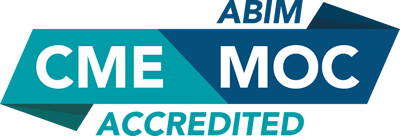
COURSE CREDITS & HOURS
16 AMA PRA Category 1 Credits™16 ACPE Credits
16.0 Contact Hours
16 (part II) MOC points in medical knowledge in the American Board of Internal Medicine's (ABIM) Maintenance of Certification (MOC) program
4 Hours of Pharmacology for Nurse Practitioners
COURSE FEES
TARGET AUDIENCE
PROGRAM PURPOSE
- Why is obesity everywhere and so hard to manage? Rational management considerations and strategies.
- Understand the demographics and penetration of weight issues as you see in your practice, inclusive of co-morbidities seen
- Explain the impact of obesity in the lives of your patients
- Understanding obesity surgery. Understanding the procedures, risks, and benefits.
- Discuss the historical and current bariatric interventional and surgical options for the non-surgeon
- Understand the potential use of these interventions for weight control
- Discuss the risks and benefits of bariatric surgery and treatment
- Discuss the goals, efficacy, and limitations of bariatric surgery
- How to manage bariatric surgery patients post and peri-operatively: behavioral changes, supplements, and understanding issues and complications that may arise.
- Effectively engage your bariatric surgery patients in their weight loss efforts
- Develop a patient-driven and empathetic approach to guiding your bariatric surgery patients in their health and weight-loss pursuits
- Create an interprofessional team to better serve your bariatric surgery patients' weight loss needs
- How to talk to your patients about their weight issues. How to guide them in their weight loss pursuits.
- Effectively engage your patients in their weight loss efforts
- Develop a patient-driven and empathetic approach to guiding your patients in their health and weight-loss pursuits
- Create an interprofessional team to better serve your patients' weight loss needs
- Myths vs. Science in Nutritional Trends: Approach for the Medical Professional
- Discussion of how to scientifically navigate the nutritional maze of popular diets and nutritional trends; The potential nutrition benefits and pitfalls of various dietary preferences and related patient concerns; Ways nutrition affects healthy lifestyles
- Cutting Edge Nutrition Innovation: A Personalized Approach
- How to critically evaluate nutrition tools that patients can use to promote optimal health; Review the “latest and greatest” nutrition applications and technologies that can be used to greatly improve patients' nutrition and health pursuits; Creation of personalized health plans based on unique, patient-specific plans, tests, and analyses
- Medical Nutrition Therapy: A Practical Approach to Diet and Disease
- Science-based Nutrition and Behavioral Guide to Treating “The Big” Medical Problems that are taking over your practice; Essential (and proven) strategies to help guide patients' diet and behaviors in the treatment of diabetes, cardiovascular disease, and GI health; Travel through the google-mess of what patients hear and why they turn to these as resources; The science-based strategies and resources that can be implemented to help patients take rational control of their health
- Nutrition Through the Ages: Prevention and Potential Pitfalls
- A working guide for a nutritional and behavioral rubric to understand what is expected (and what may undermine) optimal health from infancy through the elderly; Barriers patients face in implementing and sticking with nutritional strategies
- Update in C. difficile Colitis
- Articulate the growing epidemiological concern of C. difficile colitis
- Identify and treat mild, moderate and severe cases of C. difficile colitis
- Describe novel treatments in the treatment of recurrent C. difficile colitis
- Update in the Assessment and Treatment of COPD Exacerbations
- Articulate the growing epidemiological concern of COPD
- Classify patients with COPD using the 2023 GOLD (Global Initiative for Chronic Obstructive Lung Disease) guidelines
- Describe treatments in the management of acute COPD exacerbation
- Update in the Management of Heart Failure Exacerbations
- Explain the impact of heart failure in the US
- Explain the evidence informing the 2022 AHA/ACC/HFSA Guideline for the Management of Heart Failure
- Hospitalists and the Opioid Epidemic
- State key statistics regarding the opioid epidemic in the US
- Articulate the drivers that contributed to the opioid epidemic
- Describe 7 key steps for safe prescribing practices
- Update in the Identification and Treatment of Sepsis
- Explain the impact of sepsis in the US
- Articulate the main recommendations of the 2021 Surviving Sepsis Campaign Guidelines
- How Hospitalists Drive Value in Patient Care
- Define value in healthcare
- Articulate the urgency to bend the cost curve
- Explain several evidence-based practical solutions to improve value in practice today
- How Hospitalists Drive Quality in Patient Care
- Articulate the patient and institutional impact on an early discharge initiative
- Strategize how to formulate quality improvement projects that impact patient care
- Recognize challenges to an early discharge initiative and other QI projects and develop adaptive strategies
- Update in the Management of Acute Liver Failure
- Explain the impact of acute liver failure in the US
- Apply the latest guidelines from the AASLD position paper on acute liver failure
- Describe when to refer patients for transplantation



























































